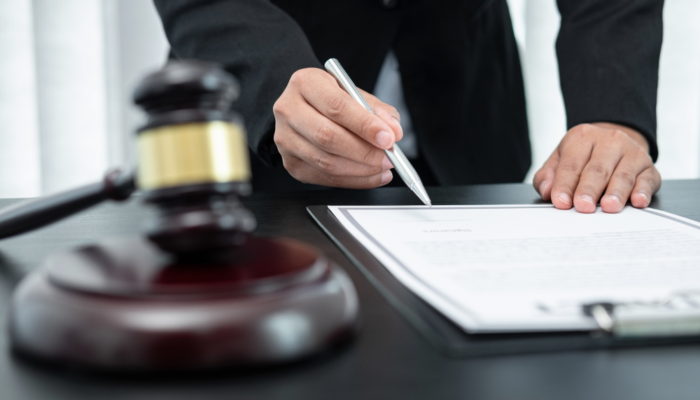A Last Will & Testament is a document the allows an orderly disposition or distribution of assets after one’s death. To create an effective Will in Florida, the Testator or creator of the Will needs to comply with certain requirements.
Many states, if not all, require a person to be at least 18 years old and of sound mind to create a valid Will. The Testator must be aware of what they are doing and what document they are signing, and they must be mentally competent and cannot be adjudicated incompetent in a prior legal proceeding (i.e., a Court). Also, an emancipated minor can create a Last Will & Testament in Florida.
According to Florida Statute Section 732.502, every valid Will must be in writing (typed or handwritten) and signed by the testator in front of at least two attesting witnesses. Oral, videotaped or audio taped, and holographic (written entirely in the testator’s handwriting but not witnessed) Wills are not legally valid in the state of Florida. The Testator’s signature must be at the end of the document, and two attesting witnesses must also sign it in the presence of the testator as well as each other. Witnesses must be competent and at least 14 years old but preferably an adult. In Florida, notarizing a Will is not necessary to make it valid. However, a notary is required to make a Will self-proving, which means it can be admitted to probate without needing said witnesses’ testimony, which can speed up the process.
A Testator can include almost any type of asset in their Will, including any asset in which they hold an individual, separate, or divisible interest. Assets can include real or personal property, bank accounts, investments, and cash. A Testator can then designate how and to whom they want their property distributed. For example, they can identify a single Beneficiary (those who will inherit under the Will) to receive a specific asset or assign a percentage of their assets to each Beneficiary.
Florida law explicitly provides that a married Testator can disinherit the surviving spouse as a Beneficiary to their estate by including a provision in the will explaining their intent to do so. However, any marital property owned by both spouses, such as the marital home, cannot be the subject of such disinheritance, unless the surviving spouse elects to waive their right to inherit such property usually by way of a prior prenuptial or postnuptial agreement. In addition, without the martial agreement, a surviving spouse has spousal rights to a deceased spouse’s property whether or not the decedent provided for such in their will. These rights include exempt property, a family allowance, an intestate share, a pretermitted spousal share, an elective share, and homestead property rights. Said spouse is entitled to either the property left them in the subject Will or their “elective share,” based on Florida Statute Section 732.201. The elective share is 30 % of the decedent’s estate, including probate assets and most non-probate assets. A spouse can seek whichever is greater, meaning they can seek the election so that a Court performs the calculation. If the elective share is more than what was left to them in the Will, then the surviving spouse receives the elective share. If a person leaves their spouse more than the elective share, they may still receive the property designated in the Will. If a Testator tries to disinherit their spouse or leave them as little as possible, then the surviving spouse may request to receive their elective share of the subject estate.
Florida law recognizes valid Wills executed in other states or from a different country, so long as the subject Will is valid in that jurisdiction.
Creating a Will is a straightforward way to plan for what will happen to an individual’s estate after death. However, it is crucial that a person follow the exact requirements under Florida law to ensure that this document is legally valid and that one’s assets transfer according to their wishes. In Florida, a person can type or handwrite their Will, but it must be signed at the end in the presence of two witnesses. Said witnesses must be competent and over 14 years old, and they must also sign the Will in the Testator’s presence and in the presence of each other. If a Court considers the document invalid for any reason, it will distribute a person’s property according to Florida’s intestacy laws (i.e., next of kin as described by the applicable statutes).
If you have any further questions or need assistance in Florida when creating, redoing, revising, orupdating your Last Will & Testament, please contact one of the attorneys of CASERTA & SPIRITI at your earliest convenience.

